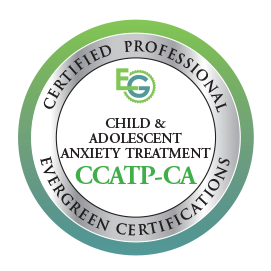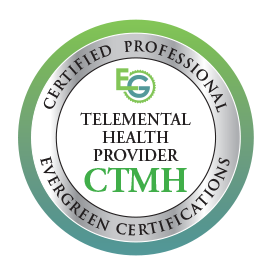Treatment Modalities
The following treatment modalities are offered:
Internal Family Systems (IFS), Gestalt, Acceptance and Commitment therapy (ACT), Cognitive Behavior Therapy (CBT), Mindfulness, EMDR Flash, and Dialectic Behavior Therapy (DBT)
EMDR (Eye Movement Desensitization and Reprocessing)
EMDR is a psychotherapy that enables people to heal from the symptoms and emotional distress that are the result of disturbing life experiences. Repeated studies show that by using EMDR therapy people can experience the benefits of psychotherapy that once took years to make a difference. Some of the studies show that 84%-90% of single-trauma victims no longer have post-traumatic stress disorder after only three 90-minute sessions. EMDR therapy shows that the mind can in fact heal from psychological trauma much as the body recovers from physical trauma.
Cognitive Processing Therapy (CPT)
CPT is a cognitive based therapy that focuses more on the thoughts around the trauma, versus the trauma itself. CPT is an evidenced based, effective treatment specifically for PTSD. The difference with CPT is that there is some focus on the actual trauma memory, but CPT is more about your thoughts about the trauma. This treatment modality, teaches you skills that helps you analyze and challenge those negative beliefs that are related to the trauma.
Cognitive therapy-based Homework assignments are a big part of the treatment process and need to be completed in order for treatment to be effective.
Child-centered play therapy (CCPT)
CCPT is a form of therapy that involves children engaging in enjoyable activities of their choice, which symbolically and metaphorically allows them to address their emotional and behavioral distress (Guerney, 2001). This therapy draws on Axline’s (1969) early work and is based on the Rogerian principles of unconditional positive regard, empathy, congruence, and selfactualization (Rogers, 1976). When applied by the astute therapist, these principles provide a climate that enables the child’s innate drive toward optimal functioning to unfold (Wilson & Ryan, 2005). Overall, the therapy process is aimed to improve self-concept and support children to realign themselves, psychologically and behaviorally.
Sensorimotor Psychotherapy
Bessel van der Kolk, world renowned psychiatrist, researcher, educator and author of the book “The Body Keeps Score, through research has confirmed that trauma is fundamentally held in the body. Sensorimotor Psychotherapy, which was developed by Dr. Pat Ogden is considered a cutting edge treatment approach by key experts in the field of psychology, including Dr. van der Kolk, Dr. Daniel Siegel, and several other leader in the field of psychotherapy. When combined with mindfulness, and cognition, somatic treatments can powerfully reduce the negative beliefs about self and the feelings of guilt and shame that so often accompany untreated trauma.
How Do I Know if Therapy is Right for Me?
The most important question to ask yourself is what you want to get out of therapy. That answer may be as simple as, “I want to feel better,” but being able to share that with a potential therapist will help both of you determine if it’s a good fit.
Take time to think through what sort of environment you feel comfortable in and what accessibility you may have to a potential therapist.
What do you want to accomplish in therapy?
If you’ve heard that cognitive behavioral therapy or Eye Movement Desensitization and Reprocessing therapy have been effective for others with your condition, you’ll want to look for a therapist with certifications or specialized training in those treatment approaches.
What questions should I ask a potential Therapist?
When you meet your therapist, whether it’s online, on the phone, or in person, it’s not uncommon to completely forget every question you wanted to ask.
To make sure you have the information you need to make a good decision, keep paper and a pen, or a notes app, handy for a few days before your meeting. Jot down questions as they come to you.
The American Psychological Association suggests a few questions for you to consider asking your therapist during your first session:
•What do you consider to be your specialty or area of expertise?
•What kinds of treatments have you found effective in resolving [the issue you’d like to resolve]?
•What insurance do you accept?
•Do you accept Medicare or Medicaid?
•How many years have you been in practice?
Get In Touch
Call
(541) 418-4616
Address
753 SE Main St. Suite 202
Roseburg, OR 97470
Hours
Mon – Fri: 9am – 5pm
Weekends: By Appointment


